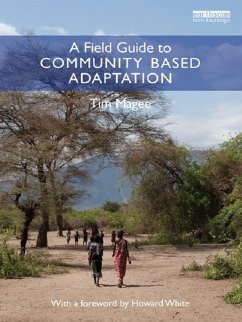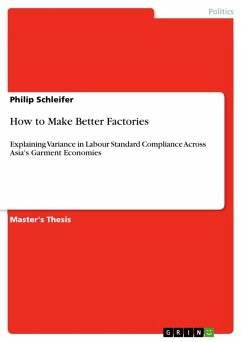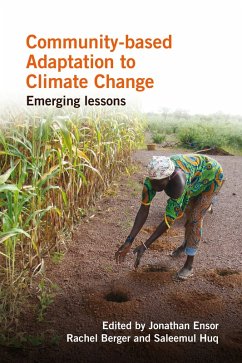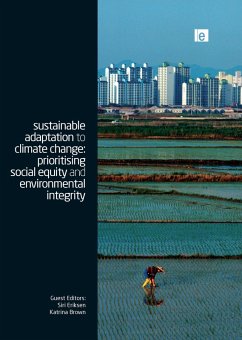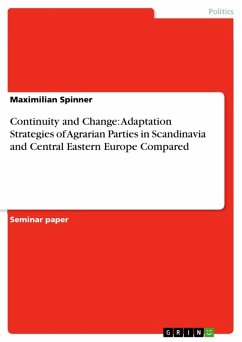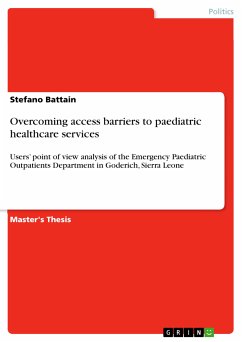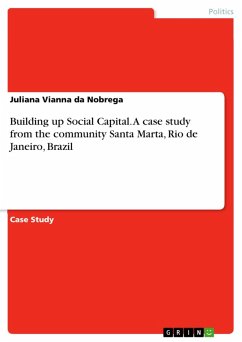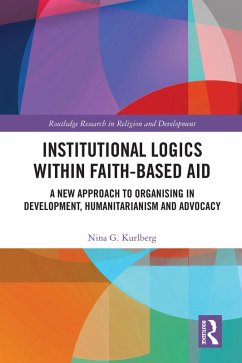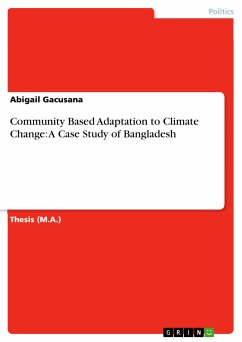
Community Based Adaptation to Climate Change: A Case Study of Bangladesh (eBook, ePUB)
Versandkostenfrei!
Sofort per Download lieferbar
Statt: 42,95 €**
29,99 €
inkl. MwSt. und vom Verlag festgesetzt.
**Preis der gedruckten Ausgabe (Broschiertes Buch)
Alle Infos zum eBook verschenkenWeitere Ausgaben:

PAYBACK Punkte
0 °P sammeln!
Thesis (M.A.) from the year 2008 in the subject Politics - Topic: Development Politics, grade: Merit, University of Birmingham, course: International Development, language: English, abstract: Climate change is a global concern with its impending threats to economies, human development and the achievement of the Millennium Development Goals. Climate change impacts are currently being observed and studies show that poor countries are the most vulnerable. Using Bangladesh as a case study, this research examines the impacts of climate change to poor, rural communities and further explores the meas...
Thesis (M.A.) from the year 2008 in the subject Politics - Topic: Development Politics, grade: Merit, University of Birmingham, course: International Development, language: English, abstract: Climate change is a global concern with its impending threats to economies, human development and the achievement of the Millennium Development Goals. Climate change impacts are currently being observed and studies show that poor countries are the most vulnerable. Using Bangladesh as a case study, this research examines the impacts of climate change to poor, rural communities and further explores the measures that are carried out to combat its existing and future threats. This research also aims to look into the existing socio-economic vulnerabilities of Bangladesh in order to establish the linkage between climate change and development. Findings of this study show that poor communities are impacted by climate change through the loss of lives, assets and livelihoods. Adaptation to climate change is therefore necessary and should be integrated in development planning and objectives, to ensure that the most vulnerable groups are represented. Overall this research has observed that Bangladesh is still lacking this capacity, despite the spontaneous adaptation being practised by local communities. This study has further observed that the most common response in addressing climate change impacts to vulnerable communities in Bangladesh is community-based adaptation, which focuses on local coping strategies and mechanisms. Community-based adaptation in the context of this research is focused on securing livelihoods and building a knowledge base for climate change awareness, among poor, rural communities and households. The findings of this study affirms that CBA programmes are increasing the resiliency of poor communities to climate change impacts however, certain limitations still exist which are further linked to policy formulation and integration, along with structural weaknesses in relation to addressing climate change in Bangladesh at the national level. Effective adaptation strategies that address climate change induced stresses are based on the participation of stakeholders and the key actors in policy making at the local, regional and national levels. This research demonstrates that this is the challenge currently facing Bangladesh and the overall conclusion presents that coordination, development and implementation of a national adaptation strategy that addresses climate change at all sectors, should help establish the framework in reducing the country's present and future vulnerabilities, in relation to climate change.
Dieser Download kann aus rechtlichen Gründen nur mit Rechnungsadresse in A, B, BG, CY, CZ, D, DK, EW, E, FIN, F, GR, HR, H, IRL, I, LT, L, LR, M, NL, PL, P, R, S, SLO, SK ausgeliefert werden.




